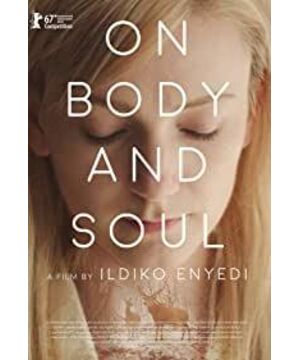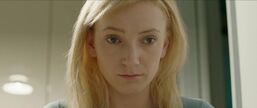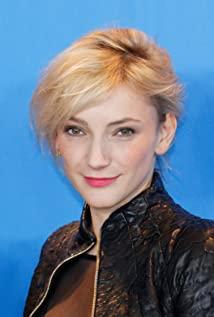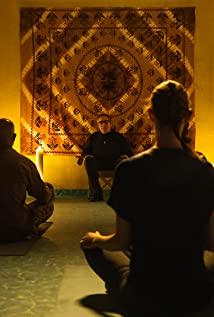ON BODY AND SOUL is an invigorating comeback of Hungarian filmmaker Ildikó Enyedi, her first feature film in 18 years which stimulatingly dances away with the Golden Bear in Berlin.
The plot can be basically boiled down as follows: when a lonely man meets a lonely woman, how the pair fumbles to build an authentic connection without forfeiting their individuality, because both are crippled in very different terms, for a middle-aged Endre (Morcsányi ), it is his corporal handicap, a liability which might explain why he is a singleton, but for the young Maria (Borbély), her condition is far more unusual and intriguing, she seems to be stuck in a limbo of emotionally arrested development, equipped with no social skills, and eschews human contact of any sort, but in accordance with the less unconventional “idiot savant” trope, she is also endowed with a preternatural power of memory, which might fairly explain her credentials as a quality inspector, newly appointed to work in Endre's abattoir,where he assumes the job as the chief financial officer.
Despite of its well-trodden narrative arc, ON BODY AND SOUL refreshingly channels a mystical dream-reality correlation between the two protagonists, embodied in their shared dreamscape as a stag and a doe and through a subplot of psychological assessment, its earth-shattering revelation is comically underlined by Klára (a voluptuous Réka Tenki and an uncanny Jennifer Lawrence doppelgänger), the psychiatrist who is in a snit of believing that she has been taken for a ride (indeed, comical elements are friskily deployed throughout). It is this paranormal tie-in propels their bonding in motion, which reverberates as a sobering call, how could these two isolated souls even start a tentative gesture if there were no such beggar belief fabrication to break the humongous glacier between them,one must venerateEnyedi for her keen insight of the intrinsic difficulty apropos of human interactions, and her diligent craftsmanship of balancing the dream-reality dyad with an intimate but non-judgmental outlook amid the film's gorgeous imagery.
It is still a bumpy road ahead after that, not least for the tabula-rosa Maria, who really steps out of her comfort zone and out on a limb to prepare herself for the ineluctable carnal ritual, but at the same time, her gawkiness sends many a wrong signal to an increasingly frustrated Endre, who is self-aware of their gaping age difference and dubious of his own potency. When the crunch comes Enyedi doesn't flinch from radically bringing a splurge of red into play, even if it offends the squeamish, which is not dissimilar with the slaughterhouse mise-en-scène, viewers are impelled to stare at pain and gore vis-à-vis, because cruelty is the staple among human beings, whether we (sometimes even obliviously) cast it on our own kind or lesser beings.
The two leading performances are of high caliber, dramaturgist Géza Morcsányi is well at ease with Endre's resigned, contemplative demeanor tinged with a smidgen of sophistication, whereas a doe-eyed (no puns intended!) Alexandra Borbély is simply mesmerizing to hold our attention from stem to stern, often appears like an ethereal creature with her impassive lineaments, and registers her unaffected agenda at the same time in pinpoint economy.
Mournfully honed in Laura Marling's WHAT HE WROTE, the thematic dirge bewitches Maria and audience alike, ON BODY AND SOUL reaches its crescendo with a hard-earned happy ending, when magic dissipates, a new lease on life is inaugurated, which could be also read as a herald of Enyedi's own future, career-wise. In fact, she is a few years younger than Géza Morcsányi in real life, so guaranteed by this fascinating love story, her next offering looks pretty buoyant, with only one proviso, the waiting time must be significantly pared down, an 18-year hiatus is an egregious waste of her talent.
referential points: Enyedi's MY TWENTIETH CENTURY (1989, 7.2/10) , Sofia Coppola's LOST IN TRANSLATION (2003, 8.8/10).
View more about On Body and Soul reviews










